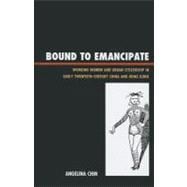
| Acknowledgments | p. ix |
| Notes on Transliteration | p. xiii |
| Introduction: Geographies of Emancipation | p. 1 |
| British Colonialism and Regulating Women in Hong Kong | p. 37 |
| Emancipating Women from Social Customs (Fengsu) in 1920s Guangzhou | p. 71 |
| Nüling and Nü Zhaodai in 1920s and 1930s Guangzhou and Hong Kong | p. 99 |
| The Fenghua Protection Movement in Guangzhou, 1929-1935 | p. 129 |
| Social Control through Charity: The Role of the Hong Kong Po Leung Kuk in the 1930s | p. 153 |
| Testimonies from the Po Leung Kuk | p. 191 |
| Women Service Workers and Labor Activism | p. 213 |
| Conclusion | p. 239 |
| Glossary | p. 249 |
| Works Cited | p. 261 |
| Index | p. 273 |
| About the Author | p. 279 |
| Table of Contents provided by Ingram. All Rights Reserved. |
The New copy of this book will include any supplemental materials advertised. Please check the title of the book to determine if it should include any access cards, study guides, lab manuals, CDs, etc.
The Used, Rental and eBook copies of this book are not guaranteed to include any supplemental materials. Typically, only the book itself is included. This is true even if the title states it includes any access cards, study guides, lab manuals, CDs, etc.